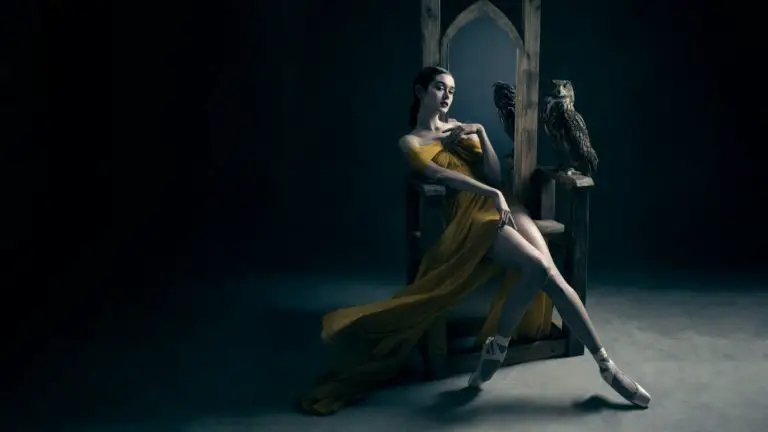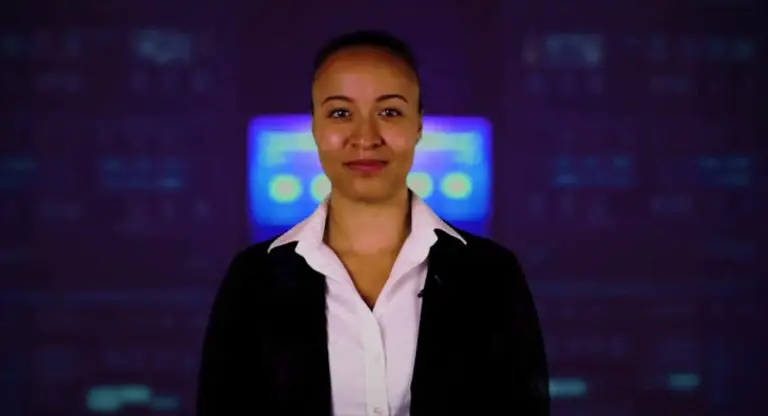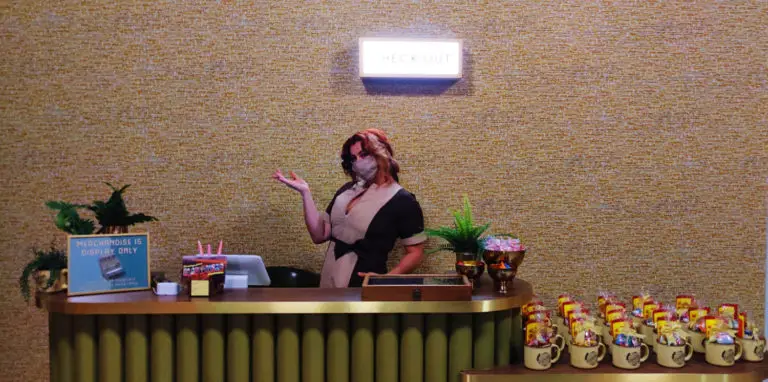I’ve never seen someone play piano quite the way Simon Barrow does. While other musicians gracefully move along with the notes, Simon’s performance feels less like a coordinated dance with his instrument and more like an argument. It’s as if he’s fighting the keys, locked in some kind of war. The music he’s producing sounds beautiful, but it feels like it comes at great cost to his psyche. I’ll find out very quickly that what I see on the outside of Simon’s demeanor matches far too well with what’s inside his head. My old friend, the troubled prodigy, struggling to regain some lost magic from his youth…but was it magic? I’m here for Michael Cassady, Eva Anderson, and Eric Hoff’s The Recital, a hybrid sandbox/promenade immersive experience, and the story that’s about to unfold is much deeper and more tragic than just an adult man coming to grips with the childhood he’s lost.
The Recital is the long-awaited return to immersive theater from Cassady, Anderson and Hoff, who stunned audiences with 2017’s Amos: A Play With Music. Once again, Hoff is on hand to direct, Anderson to co-write, and Cassady to write, star, and compose original music for the piece. It’s unfair, however, to compare the two shows. Where Amos was a frenetic tribute to Electronic Dance Music, fueled by heavy beats, Recital is a 75-minute performance, birthed from Classical Music, but far more focused on what happens when the music stops. This is a wholly new beast, driven by the strong performances of the cast and whip-smart direction; it’s a step that shows the versatility of the creators while staying true to the musically inspired style that audiences have come to expect from them.
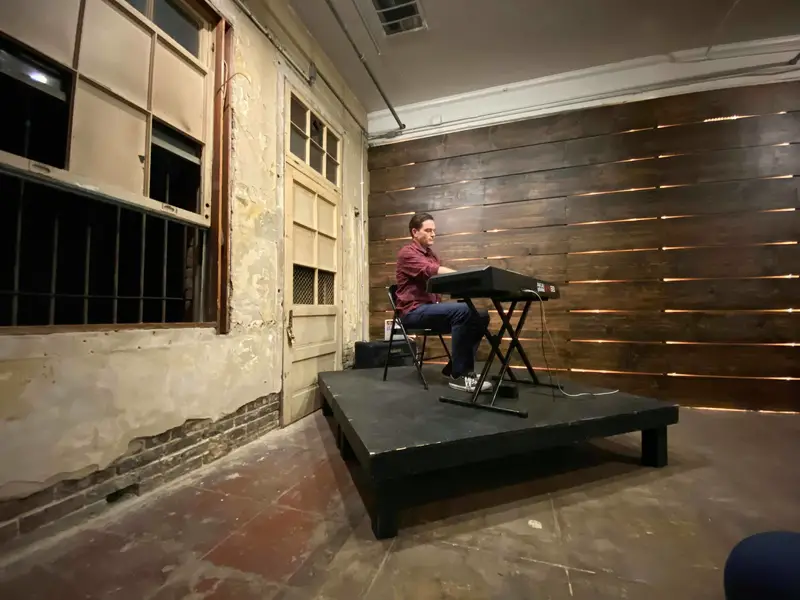
Simon, played to deeply emotional effect by Cassady, is our driving force in The Recital. He’s called us all here because he’s set to perform for the first time since the bright lights of his days as a child prodigy have long burned out. And he’s good, really good, despite his obvious resistance to play. After the formal “recital” portion of the show, Simon seems broken, the tone of the play shifts abruptly, and we enter Simon’s mind, physically moving deeper within the recesses of Monkspace in Los Angeles, which are deliberately and effectively set-designed by Narges Norouzi. We see Simon’s memories, incomplete and slanted to feature him, like some kind of waking dream. We descend along with him through a seeming madness that we are slowly whirling toward the origin of.
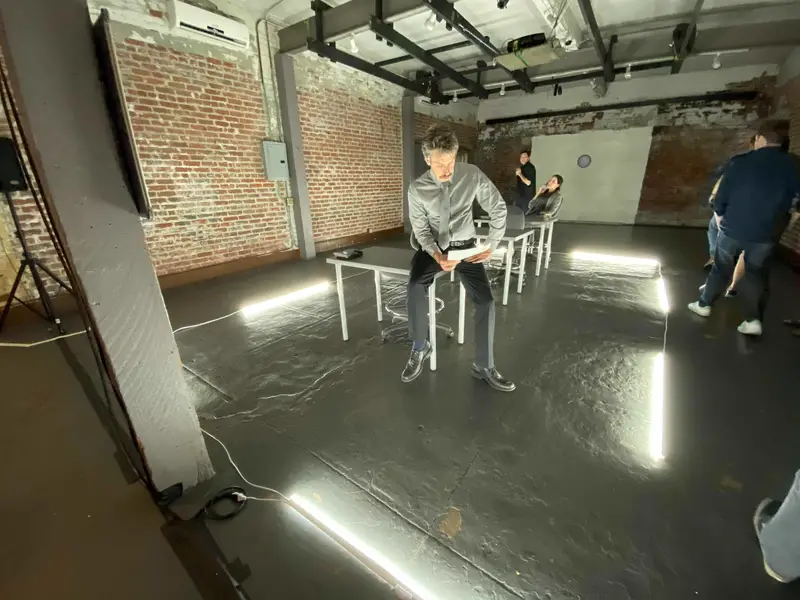
Cassady’s performance is bolstered by the talented cast around him. Alana Dietze and Allan McLeod, as Simon’s college friends, are effortlessly natural in their care and concern for Simon. McLeod, in particular, provides a much-appreciated comedic effect even in the most deliberately awkward scenarios. Both Dietze and McLeod feature in the only true “immersive” portion of the show, mingling sandbox-style with the recital guests as we wait for the performance to begin, and adding additional insights into Simon’s history for those willing to engage. Similarly, John Ross Bowie, as Simon’s brash, uninterested boss Chuck, truly shines in his interactions in these scenes. As we move into clips from Simon’s adult life, and his failure to move beyond the successes of his childhood, Chuck serves as a lens through which we see Simon begin to flounder as an adult. Also featured is the always excellent Lauren Flans as Adrienne, Simon’s flirty, clever coworker, who can’t seem to get him on the same page as her; both she and actor Ruby Farley as Monica/Simon’s sister Vanessa serve as the female influences on Simon’s development that he feels wholly unequipped to interpret properly.
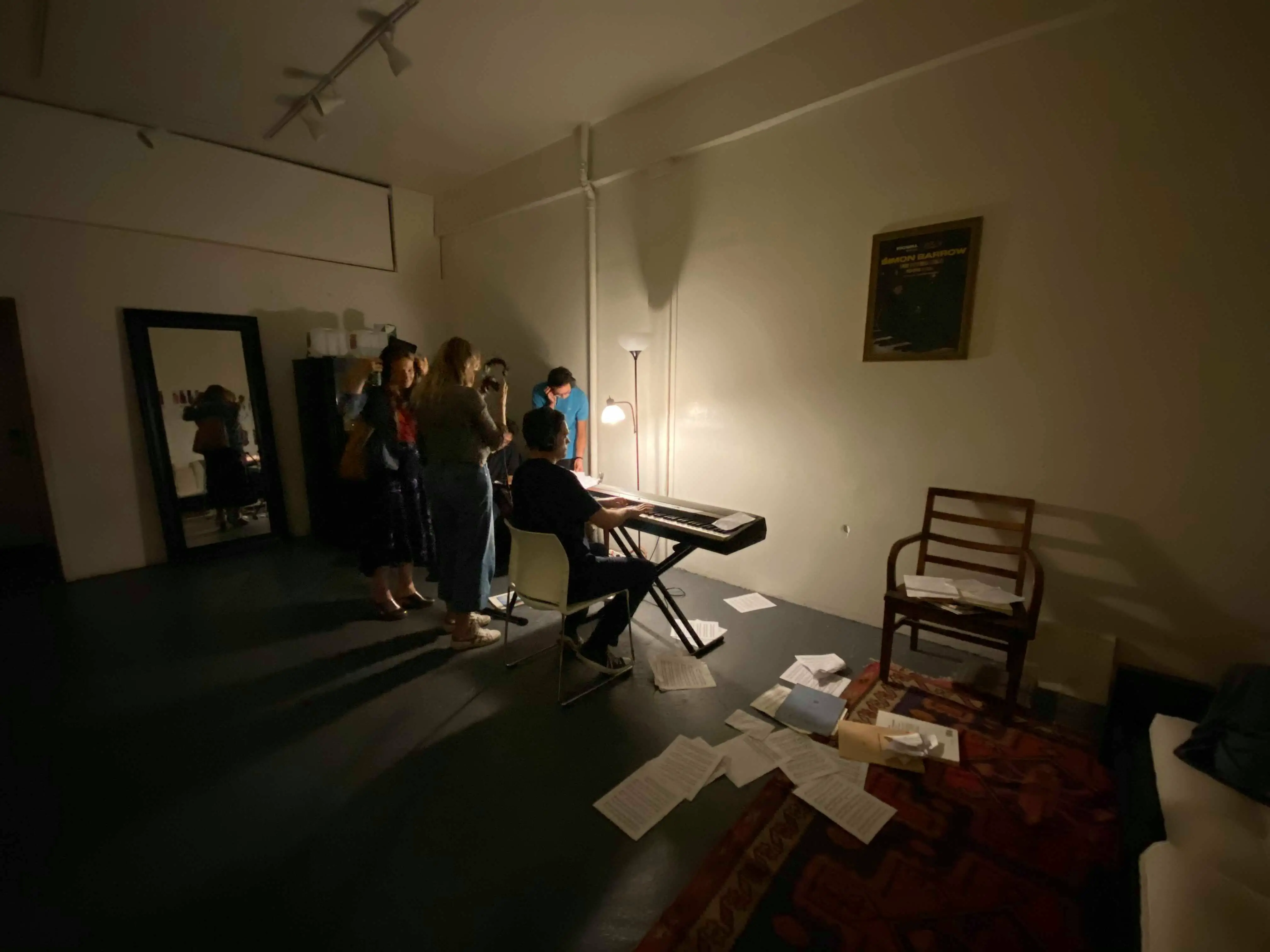
Simon’s story is a sad but not uncommon one – “there’s no adult prodigies,” he notes, after all – and it’s cleverly told thanks to Hoff, Anderson, and Cassady’s execution. The performance overall, however, suffers somewhat from inconsistent pacing; the too-large group of 20 to 30 participants shuffling from room to room after Cassady makes transitions between scenes feel drawn out, although the space itself is used cleverly. Additionally, it’s clear the audience is meant to get to the core of what “went wrong” in Simon’s mind that’s brought him to where he is now, and while that does become mostly clear, the implications of his past on the present feel somewhat murky when the performance is viewed as a whole. Despite this, the play is anchored together by the powerful work of Cassady himself; he struggles, sweats, and suffers his way through this forced retelling of his life, and the result is awe-inspiring. In total, The Recital is a story brilliantly told and executed; an uncanny perspective on one man’s journey that moves along eloquently like a well-crafted sonata.
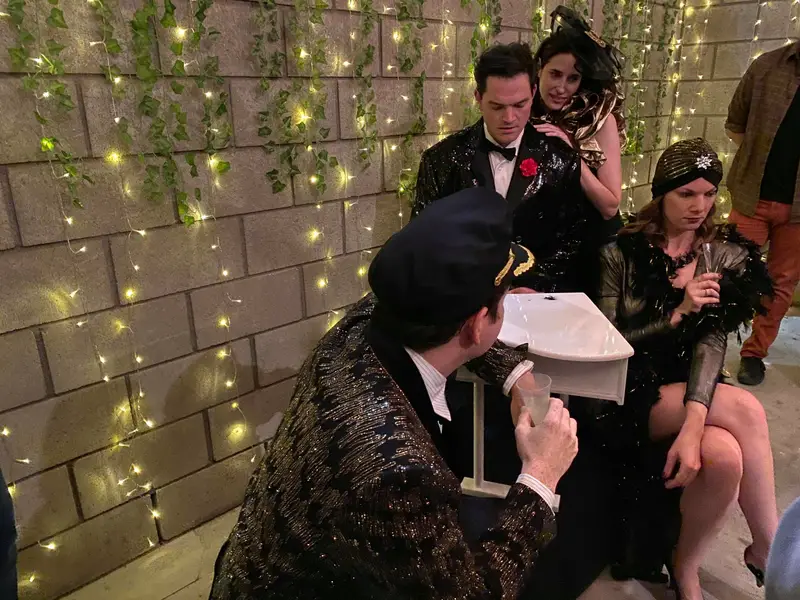
The play closes on yet another piano performance from Simon, this one in stark contrast to the first. By now we are no longer old friends supporting him as he returns to the stage, we are merely observers within his mind, silently reflecting back his own guilt and redemption as he plays. I watch his fingers float across the keys, still fighting against the tune in his head, though seemingly steadier now in himself. I now know what went wrong in his past, and I feel as if I’m seeing the beginning of something starting to go right. This is a man who’s been locked in a battle with himself since the day he was first labelled “a prodigy,” but now, stretching himself across his instrument, it feels like a battle he may finally win.
Find more information on The Recital and possible extension of the sold-out run on their website and Instagram. Check out our Event Guide for more immersive entertainment throughout the year.

